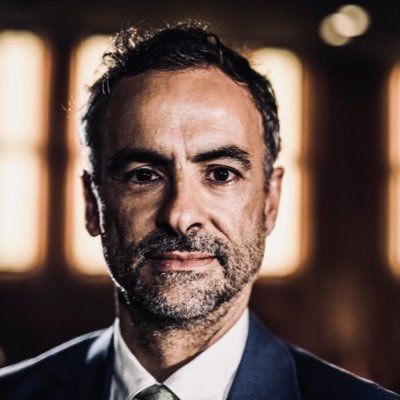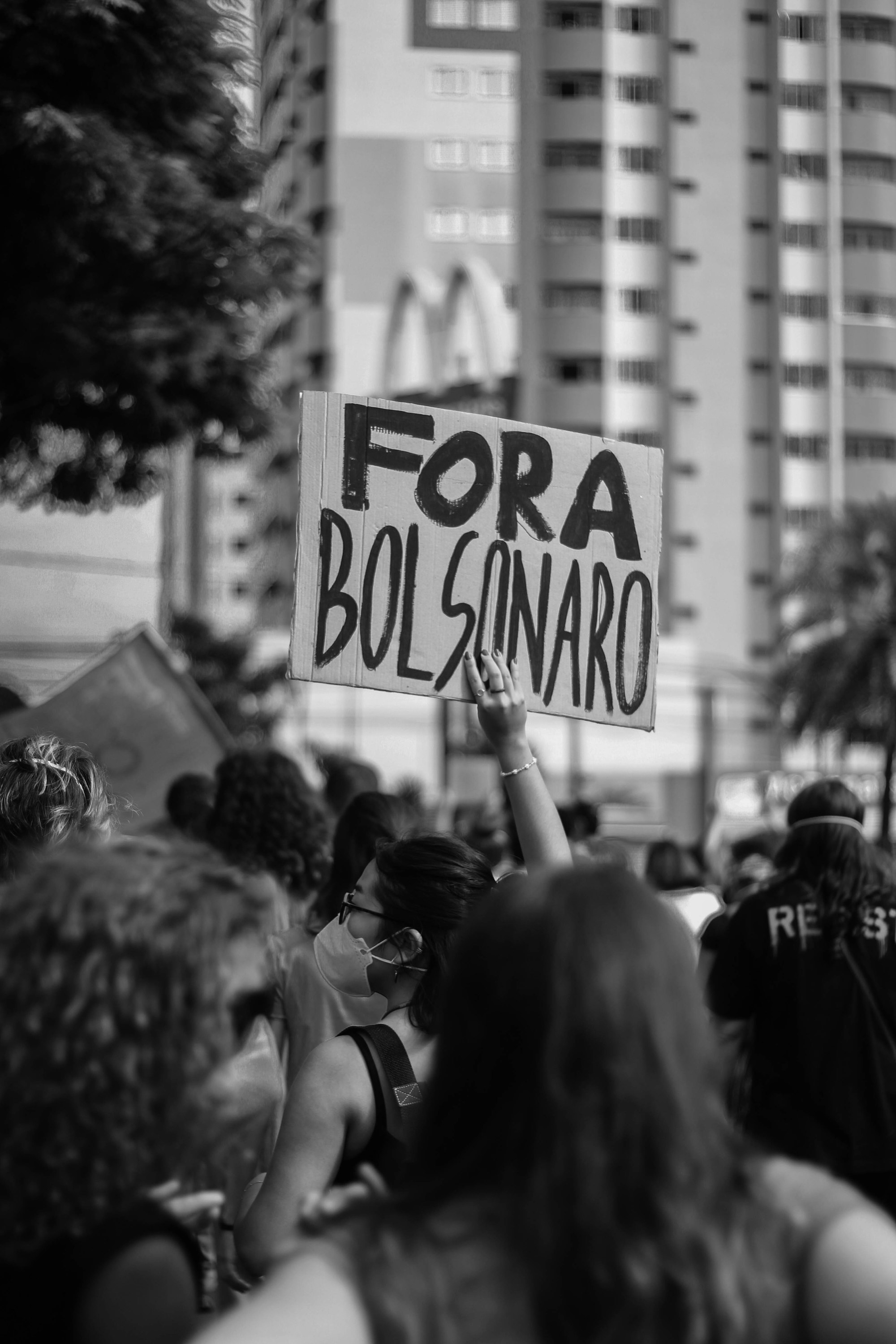According to the Commission of Parliamentary Inquiry (CPI) of the Brazilian Senate, Bolsonaro committed at least nine crimes, but will he ever face justice?
As the report of the Commission of Parliamentary Inquiry (CPI) on the Government’s response to Covid-19 was approved on 26 October 2021 in the Brazilian Senate, the question in everyone’s minds was: what next? The report is unprecedented in Brazil’s history and, likely, world history too. What other incumbent President has been accused by an official parliamentary report of having committed nine crimes, including crimes against humanity (Article 7, Rome Statute), exposing the lives of others to risk (Article 132 of the Penal Code), causing an epidemic (Article 267), breaching preventive public health measures (Article 268), inciting crime (Article 286)? (The full list of the crimes attributed to Bolsonaro and a summary of the justification of the CPI report can be found on the table at the end of this post).
That such serious accusations have not entailed immediate resignation nor impeachment proceedings in Congress, and not even an official pronouncement of the President trying to provide some explanation to the population, is an indication of the fragile state of Brazil’s ailing democracy. But what about the legal consequences of this report? Is Bolsonaro going to face any kind of legal accountability for his conduct? This is the focus in this piece.
Bolsonaro’s crimes
That Bolsonaro has committed a series of crimes, ordinary and political, during the pandemic, was clear well before the CPI’s report. Two earlier blogs in this series, A parliamentary commission of inquiry (CPI) will investigate Brazil's Response to Covid-19 and the President’s liability for one of the worst death rates in the world and The crimes of the President: Bolsonaro should be held liable, but will he? on the works of the CPI, have already explained this in some detail. What the CPI did was make such information more widely available and add more evidence and culprits to the story. With its powers of summoning witnesses and requesting documents, it was able to add some important detail (and legal evidence) that helped to connect the dots and to explain some of the potential motivations of the President. For instance, it was already well-documented before the CPI that the President promoted a scientifically bogus 'early treatment' to Covid-19 (a cocktail of drugs including Chloroquine) and made sustained efforts to discredit proven efficacious measures such as the use of masks, social distancing, and vaccination ('there is no scientific proof that vaccines work', he claimed several times). What was not so clear was why he pursued such a disastrous track. Many believed in pure ignorance and-or insanity. Others, more plausibly, argued that the President was actually pursuing 'herd immunity', in the belief that the economy would recover faster and that would improve his political chances, despite the inordinate amount of additional unnecessary deaths this tactic would inevitably lead to (see Brazil - The Timeline of the Federal Government's Strategy to Spread Covid-19).
We now know, thanks to testimonial and documental evidence gathered by the CPI, that his conduct may also be explained, at least in part, by even more spurious motives: financial gain for a lot of individuals and companies gravitating around the federal Government, many of whom actual members of (or very close to) the Government. These have also been named in the Senate report alongside the President as having themselves committed crimes (the report indicts no less than 77 individuals and two companies).
It is unfeasible to describe here all actions of this veritable 'ecosystem' of criminal behaviour installed at the heart of the Brazilian federal Government during the pandemic, to use a felicitous term circulating in the media. The full report has almost 1,300 pages. But the following case on vaccinations procurement provides a good illustration of the broader picture. While the only available vaccines in the market were those produced in Brazil by the Butantan Institute in Sao Paulo in partnership with China (Sinovac) or those produced by the large American and European firms (Pfizer and Astra Zeneca), Bolsonaro’s Ministry of Health showed no urgency in purchasing them. High price and contractual clauses excluding liability were often cited as explanations for such delays.[1] All of sudden, however, in early 2021, huge pressure was put on civil servants of the Ministry of Health to approve, at breakneck speed, a 20 million doses contract for the purchase of Covaxin, an Indian vaccine produced by Barath Biotech. Evidence presented to the CPI by the civil servant who was subjected to those pressures, including recorded telephone calls and the contract speedily signed for the deal, revealed that the price of each dose (US$ 15 per dose) was the most expensive of all among vaccines available from other providers and that a bribe was being negotiated by a servant inside the Ministry of Health with very close links to one of Bolsonaro’s main allies in Congress, former Minister of Health and current leader of the Government in the lower house, Ricardo Barros. No evidence of Bolsonaro’s direct involvement in the negotiation of this particular contract has surfaced so far, but it was proven in the CPI that he was informed about the operation by the whistle-blower inside the Ministry of Health. According to the whistle-blower, he also promised to notify the federal police but didn’t. Bolsonaro has confirmed the account but claims he could not know everything happening in his ministries. The CPI did not accept the justification and attributed to him the crime of 'prevarication', ie failing to carry out an official duty, (to report the allegations of corruption to the federal police) for personal interest or gain (Article 319 of the Brazilian Penal Code).
The vaccines’ procurement scandal and many other testimonies and documental evidence gathered by the CPI have helped to strengthen the plausibility of the charges against Bolsonaro, in particular the most serious one, of deliberately pursuing (and succeeding in) a strategy of accelerating the spread of the pandemic among the Brazilian population. Whether for ignorance, insanity, political or financial gain (or a combination of all), the fact is that such strategy led to a catastrophic loss of many more lives [2] than Brazil would have suffered had a responsible President fought alongside State and municipal governments and civil society to combat the pandemic with scientifically proven measures rather than undermined and sabotaged them.
Punishment?
But will Bolsonaro ever face justice for any of these crimes? The answer is not straightforward, as it depends on a combination of related factors: the timing of any legal proceedings, the will of prosecutors to pursue them in court and the will of members of Congress to allow any proceedings to go ahead. Timing is important because, as long as Bolsonaro remains in the post of President (which could be for only another year or another five if he is re-elected), only the Attorney General, appointed by Bolsonaro himself and regarded by many as a 'poodle' of the President, can initiate legal proceedings before the Supreme Court. Moreover, as well as the unlikely initiative of the Attorney General, any criminal proceedings against the President require the approval of two thirds of members of the lower house (currently a very unlikely scenario). The president of the lower house, Artur Lira, an ally of Bolsonaro, has criticised the report of the CPI as soon as it came out, saying it was unnaceptable that members of Parliament had been mentio0ned in the report. The Attorney General has so far not taken any measures (a pronouncement by him is planned for the 27th of November).
But once Bolsonaro stands down as President, he loses this prerogative and can be prosecuted in court by any member of the Public Prosecutor’s Office, and virtually anywhere in Brazil as many of the crimes attributed to him took place during his travels across the country. In my view, thus, the prospects of Bolsonaro facing the justice system are much more likely in the longer term, when he is not President any longer. This all assumes, of course, that he does not win the next elections, nor attempts and succeeds in a coup, something which cannot be discarded.
A final possibility to be mentioned is that Bolsonaro someday faces prosecution before the International Criminal Court. There are already four requests pending against him for genocide against indigenous peoples, the first two dating back from pre-pandemic times in 2019. The CPI report will be forwarded to the ICC requesting his prosecution also for crimes against humanity during the pandemic.
|
Table: Crimes
and conduct attributed to Bolsonaro by the Senate’s Commission of Parliamentary Inquiry Report |
|
|
Crimes |
Alleged
conduct |
|
International Crime (Rome Statute) |
|
|
Crimes against
humanity art. 7º, para 1,
b, h and k, and para 2, b e g |
Attempt to
spread coronavirus to speed up herd immunity; sabotage of public health
measures. |
|
Ordinary Crimes (Penal Code) |
|
|
Causing epidemic
resulting in death art. 267 Penal
Code 20 to 30 years prison
sentence |
The aggregate of
the conduct of the president, including incitement to disrespect public health
measures, delay in acquisition of vaccines, promotion of inefficacious
treatments, sabotage of public health measures. |
|
Breach of
preventive public health measure Art. 268 Penal Code 1 month to 1
year detention plus fine |
Several breaches
of public health measures imposing the use of masks and social distancing. |
|
Charlatanism Art. 283 Penal
Code 3 months to 1
year detention plus fine |
Promotion of
inefficacious treatment. |
|
Incitement to
crime Art. 286 Penal
Code 3 months to 1
year detention plus fine |
Encouragement of
supporters to breach pandemic regulations and to invade hospitals to check if
hospitalizations were fake. |
|
Falsification
of document Art. 298 Penal
Code 1 to 5 years in
prison plus fine |
Alteration of a
document that allegedly showed over notification of Covid deaths. |
|
Irregular use
of public money Art. 315 Penal
Code 3 months detention or fine |
Investment of
millions in the inefficacious treatment (Chloroquine) |
|
Failure to comply
with official duty for private interests (“Prevarication”) Art. 319 Penal
Code 3 months to 1
year detention plus fine |
Failure to act
on reports of corruption for the acquisition of vaccines in the Ministry of
Health |
|
Political Crimes (whose sanction is potential
impeachment in Congress) |
|
|
Violation of a
social right Art. 7, s.9 of
Law 1.079/1950 |
Failure to
protect the right to health of the population |
|
Incompatibility with
the dignity, honour and decorum of the post of President Art. 9, s. 7 of
Law 1.079/1950 |
The conduct of the
president as a whole during the pandemic |
Source: Report of the Brazilian Senate Commission of Parliamentary Inquiry, 26 October 2021
[1] In August 2020, Pfizer offered 70 million doses to the Brazilian Government,
[2] A study cited in the Senate report estimates that 127,000 lives could have been saved if a vaccination programme with the vaccines offered by Pfizer and Butantan/Sinovac to the federal Government had been promptly put in place (AMAKU et al, 'Modelling the impact of delaying vaccination against SARS-CoV-2 assuming unlimited vacines supply' February 2021. Preprint. DOI: https://doi.org/10.1101/2021.02.22.21252189, cited in the Senate Report, page 1015. See also Santos et al (2021), 'Impacto das decisões das autoridades públicas na vida e na morte da população: covid-19 no Brasil' Março de 2021. Preprint. DOI: https://doi.org/10.1590/ScieloPreprints.2182).
TWEET
